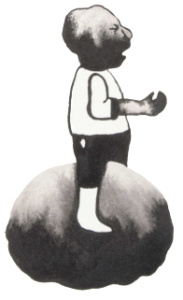 In an online publication, a woman and her husband have accused several institutions of doing nothing to stop the sexual abuse of her daughter and several grandchildren by her ex-husband. The couple was ordered in preliminary relief proceedings to remove the online publication from the Internet “to the extent that these articles cannot be retrieved anymore in any way whatsoever by any search request on the Internet”. The order carried a penalty of EUR 2,500 for each day of non-compliance, with a maximum of EUR 25,000.
In an online publication, a woman and her husband have accused several institutions of doing nothing to stop the sexual abuse of her daughter and several grandchildren by her ex-husband. The couple was ordered in preliminary relief proceedings to remove the online publication from the Internet “to the extent that these articles cannot be retrieved anymore in any way whatsoever by any search request on the Internet”. The order carried a penalty of EUR 2,500 for each day of non-compliance, with a maximum of EUR 25,000.
The article was taken offline, but the claimant was not satisfied yet, as the article still proved to be in the cache of search engines, and could be found through the Internet. In a recent ruling the Court of Alkmaar in preliminary relief proceedings confirmed that removing a publication from the Internet and making it untraceable also means that search engines must be asked to empty their cache. The Court explained that it had personally tried this and it had turned out very easy to make such a request. Because they had failed to do this, the couple forfeited penalties amounting to EUR 22,500.
In cases concerning unlawful publications on the Internet it is often claimed explicitly that the defendant also notify specific search engines to have the article removed from their cache. Such claims are sometimes denied, because it is the search engine’s responsibility what it puts in its own cache and thus what it publishes; see for example GeenStijl/Rechtenstudente for a ruling to this effect. Sometimes, however, such a claim is allowed and then the defendant not only has to remove the article from his own site, but also request search engines to remove it.
I think that an order to ensure that a publication disappears from the Internet altogether on pain of a penalty cannot be awarded. After all a person can only be ordered to do something that is in his power. Once third parties have copied your publication or have put it in cache, all you can do is ask them to remove the article.
The search engines that had to be notified were not specified by the plaintiff. This way the defendant is always left holding the bag. There are countless search engines and it is impossible to notify them all. If the claimant does not specify which search engines should be notified, it is impossible to make sure that an article cannot be found through search engines anymore. There is a big chance that some investigating will reveal a search engine that still refers to the article. This way the claimant always wins the jackpot. The claimant should have brought a clearer claim, and has now wrongly been granted the imposition of penalties on the defendants. This case calls for an appeal.

